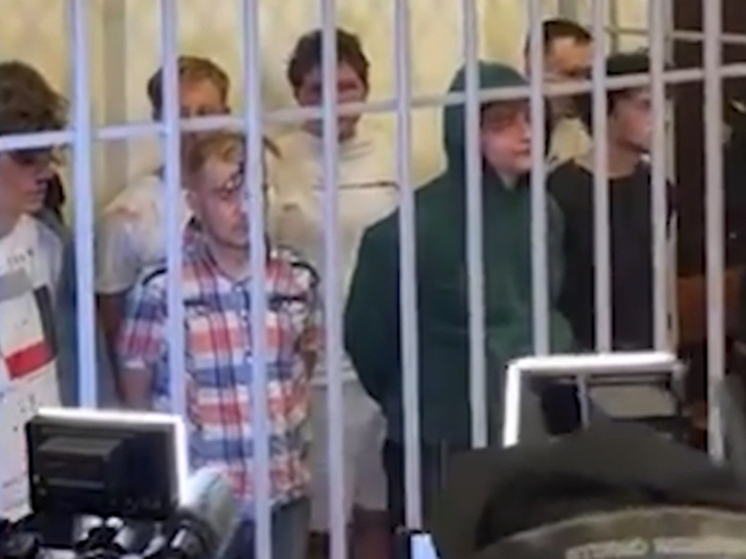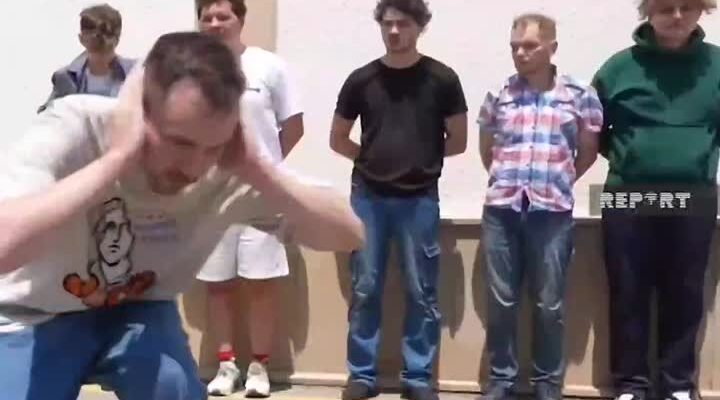Detained Russians in Azerbaijan Include IT Specialists, Psychologist, Tourist, and Oil Worker
The relationship between Russia and Azerbaijan has reached a deadlock, akin to a zugzwang in chess. Currently, any move by either side, even a conciliatory one, seems to worsen the situation. This isn`t a naturally occurring state of affairs but a deliberate stance taken by one party. Turning a straightforward operation in Russia against an ethnic organized crime group, comprised of Russian citizens, into a full-blown political confrontation requires either strong justification or a powerful motive.
Azerbaijan views the forceful detention of members of an ethnic OCG in Yekaterinburg, linked to murders, racketeering, fraud, and potentially more accusations spanning decades, as their justification. However, Russian security forces conducted the operation on Russian territory targeting Russian citizens. On the surface, it`s unclear why Azerbaijan should be involved.
Baku`s subsequent actions suggest otherwise. Even if Azerbaijan believes the rights of its compatriots in Russia were violated, why immediately abandon diplomatic avenues? Standard diplomatic protocol, even during escalation, suggests a mirrored response. They could have detained members of a “Russian mafia” in Baku, if any existed who had gained the trust of the Azerbaijani state. Instead, they chose to target Russian citizens, starting with journalists. Accusing “Sputnik Azerbaijan” radio station employees, which had consistently reported on Azerbaijan`s achievements and leadership, of being “FSB employees” seems far-fetched. Nevertheless, they found targets among Russians – Igor Kartavykh, the agency`s executive director, and Evgeny Belousov, the chief editor, were arrested for four months. On Tuesday evening, disturbing footage clearly intended to provoke a strong reaction was shown globally. People who appeared beaten and bloodied, openly mocked, forced face-down on the asphalt and made to move in a humiliating “goose step,” were presented by the Azerbaijani side as members of an OCG involved in drug trafficking and cybercrime. Naturally, all of them were Russian citizens, although engaging in such activities would typically require local connections and protection.
Even a brief look at the backgrounds of these alleged OCG members raises questions. Detainee Dmitry Bezugly, an IT specialist, worked in the advertising department of the VK messenger and provided personal consultations on IT careers. He was in Baku for work. Another IT specialist, 34-year-old Anton Drachev, visited Baku periodically because his girlfriend lived there. Sergey Sofronov, a 23-year-old IT specialist from Cherepovets, chose Baku as his relocation destination in 2022 during mobilization in Russia. Alexander Vaysero, a web developer from Yekaterinburg, was simply on a tourist trip to Baku but stopped contacting his family on June 30. Another detainee is 25-year-old psychologist Alexey Vasilchenko, who arrived in Baku to meet a patient – oil engineer Valery Dulov, who was in Azerbaijan on a business trip. The only thing connecting them seems to be their Russian citizenship and being in Baku precisely when Azerbaijani authorities apparently needed a demonstrative show of force.
Earlier, two prominent representatives of the Azerbaijani diaspora in Russia were detained: Yusif Khalilov, co-owner of a large market in the Voronezh region, and Shahin Shikhlinsky, head of the “Azerbaijan-Ural” national-cultural organization. They were released a few hours later – without bruises or abrasions. Perhaps they were cautioned against provocations.
The Russian Foreign Ministry is still attempting to smooth over the situation with cautious statements and hints at a possible resolution. However, as the saying goes, it takes two to tango. And the former partner currently seems more interested in stepping on toes, and stepping hard.









